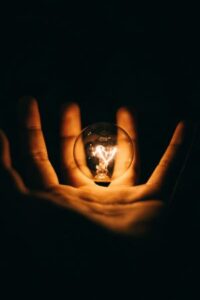Since I learned about this topic, I think I can divide my life into a before and after. I mean, many things started to make sense after understanding how some of the many hormones that our body produces can determine our state and therefore influence our decisions.
Four hormones we produce daily are colloquially known as happiness hormones. I mean dopamine, serotonin, endorphin and oxytocin. The famous cortisol, on the other hand, is precisely the opposite. It is the stress hormone. I will dedicate a particular article on cortisol and its relationship with burnout. Today I will focus solely on the hormones of happiness.
I like to call dopamine the victory hormone. Let’s imagine that we are craving a juicy hamburger. You can visualize it all day during working hours; you can imagine its smell, taste, texture… you can’t wait to buy it. Finally, the moment comes, and you take the first bite; that feeling of satisfaction is generated by dopamine. It only lasts a few minutes (at most) and then dissipates (in many cases, later becoming a feeling of guilt). Dopamine is the hormone released when we get what we are looking for.
Serotonin is a hormone that is related to mood. The lack of serotonin leads to demotivation, anxiety, lack of concentration, lack of energy, pessimism and finally, depression. It is also released when we feel satiated (dopamine, on the other hand, generates the feeling of hunger), which is why low levels of this hormone can lead to overeating. For this reason, weight gain is often associated with depression. In addition, the respect that others have for you and the quest for superiority also generate serotonin.
On the other hand, endorphin is more related to euphoria. The brain releases endorphins to cover up the pain for a limited time. Let’s imagine that we are running from danger, and we fall; in doing so, we hurt ourselves. Under normal conditions, we would not be able to move, but given the situation, the endorphin released by the brain makes us not feel the pain, and we continue to flee. That is its function. When we do sports and push our bodies to the limit, we also generate endorphins. The human body is not designed so that high endorphins constantly circulate in the blood.
Finally, let’s think about the moments in which we feel that we can trust someone or that someone trusts us. Or maybe we are proud of someone else’s achievement. That feeling is caused by oxytocin. The hormone allows us to socialize and belong to a group. To generate oxytocin, we must feel relaxed and safe with another person. Family connections, physical contact, and sexual intercourse (which is why it is known as the love hormone) are also driven by oxytocin.
As we can see, these four hormones generate pleasant sensations, and we are all, in one way or another, addicted to them. We need them, look for them, and unconsciously we make our decisions hoping that the hormones will do their job and make us happy. As I said at the beginning, when I think about it, I understand why I made certain decisions and followed specific paths. I guess I was looking to “get high” with those hormones.
As humans, we try to run away from pain and seek to generate pleasure; there is nothing wrong with this, especially if we are aware of it. The problem occurs when we cannot generate these hormones through good decisions but seek to generate them synthetically through the wrong means. The best-known drugs can stimulate the brain, producing excess happiness hormones and creating severe addiction and dependence. Antidepressants and alcohol generate serotonin, MDMA produces oxytocin, morphine generates endorphin, and cocaine rapidly generates dopamine. It is, therefore, not difficult to understand why some people cannot stop using drugs and require rehabilitation.
I do not pretend to be a spiritual guide and say or advise how to generate these happiness hormones. I just hope understanding how our body works helps us make good decisions. Accept the hormone that gives you the most pleasure (we all like one in particular). It’s important; let’s respect that and start being happy generating this hormone in healthy quantities and ways. And what do you think? Do you feel that, at some point, you have made good or bad decisions with this search for pleasure as the primary objective? I look forward to reading your comments.
Coaching can help you find what you like or expect most in life. If you want to learn more about the subject or talk, please get in touch with me via the web or schedule a meeting.
Alexander Martinez









